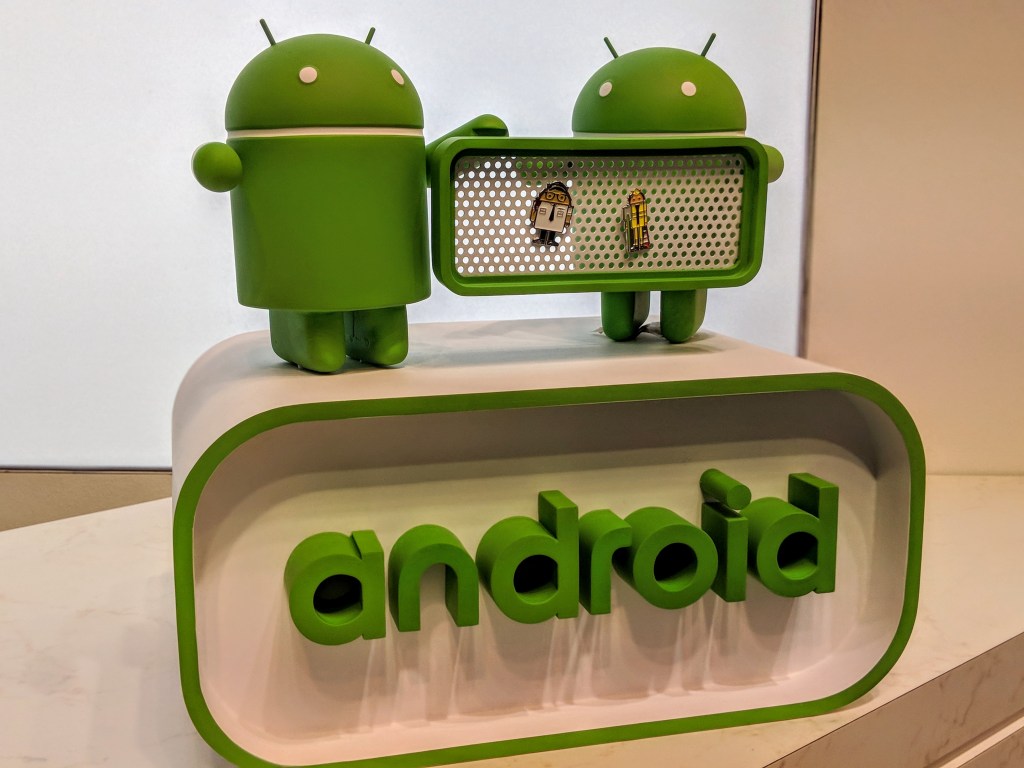Google has announced changes to the licensing model for its Android mobile operating system in Europe, including introducing a fee for licensing some of its own brand apps, saying it’s doing so to comply with a major European antitrust ruling this summer.
In July the region’s antitrust regulators hit Google with a recordbreaking $5BN fine for violations pertaining to Android, finding the company had abused the dominance of the platform by requiring manufacturers pre-install other Google apps in order to license its popular Play app store.
Regulators also found Google had made payments to manufacturers and mobile network operators in exchange for exclusively pre-installing Google Search on their devices, and used Play store licensing to prevent manufacturers from selling devices based on Android forks.
Google disputes the Commission’s findings, and last week filed its appeal — a legal process that could take years. But in the meanwhile it’s making changes to how it licenses Android in Europe to avoid the risk of additional penalties heaped on top of the antitrust fine.
Hiroshi Lockheimer, Google’s senior vice president of platforms & ecosystems, revealed the new licensing options in a blog post published today.
Under updated “compatibility agreements”, he writes that mobile device makers will be able to build and sell Android devices intended for the European Economic Area (EEA) both with and without Google mobile apps preloaded — something Google’s same ‘compatibility’ contracts restricted them from doing before, when it was strictly either/or (either you made Android forks, or you made Android devices with Google apps — not both).
“Going forward, Android partners wishing to distribute Google apps may also build non-compatible, or forked, smartphones and tablets for the European Economic Area (EEA),” confirms Lockheimer.
However the company is also changing how it licenses the full Android bundle — which previously required OEMs to load devices with the Google mobile application suite, Google Search and the Chrome browser in order to be able to offer the popular Play Store — by introducing fees for OEMs wanting to pre-load a subset of those same apps under “a new paid licensing agreement for smartphones and tablets shipped into the EEA”.
Though Google stresses there will be no charge for using the Android platform itself. (So a pure fork without any Google services preloaded still wouldn’t require a fee.)
Google also appears to be splitting out Google Search and Chrome from the rest of the Google apps in its mobile suite (which traditionally means stuff like YouTube, the Play Store, Gmail, Google Maps, although Lockheimer’s blog post does not make it clear which exact apps he’s talking about) — letting OEMs selectively unbundle some Google apps, albeit potentially for a fee, depending on the apps in question.
“[D]evice manufacturers will be able to license the Google mobile application suite separately from the Google Search App or the Chrome browser,” is what Lockheimer unilluminatingly writes.
Perhaps Google wants future unbundled Android forks to still be able to have Google Search or Chrome, even if they don’t have the Play store, but it’s really not at all clear which configurations of Google apps will be permitted under the new licensing terms, and which won’t.
“Since the pre-installation of Google Search and Chrome together with our other apps helped us fund the development and free distribution of Android, we will introduce a new paid licensing agreement for smartphones and tablets shipped into the EEA. Android will remain free and open source,” Lockheimer adds, without specifying what the fees will be either.
“We’ll also offer new commercial agreements to partners for the non-exclusive pre-installation and placement of Google Search and Chrome. As before, competing apps may be pre-installed alongside ours,” he continues to complete his trio of poorly explained licensing changes.
We’ve asked Google to clarify the various permitted and not permitted app configurations, as well as which apps will require a fee (and which won’t), and how much the fees will be, and will update this post with any response.
The devil in all those details should become clear soon though, as Google says the new licensing options will come into effect on October 29 for all new (Android based) smartphones and tablets launched in the EEA.
Update: Google has now confirmed that Google Search and/or Chrome will be available for OEMs to license (non-exclusively) without a fee.
While the Google apps that will require a fee are: Google Play Store, Gmail, Maps, YouTube, Duo, Play Movies, Play Music, Drive and Photos. It is not disclosing the fees being charged.
This suggests OEMs will be able to offer a phone with the Play Store (plus the bundled Google apps) and a non-Google search engine and browser as the default, for example. Or a device without Play but with Google Search or Chrome.
The company also appears to be offering OEMs incentives to place Search or Chrome prominently under the new license.
Responding to Google’s announcement, a Commission spokesperson told us: “It is Google’s responsibility to comply with its obligations under the Decision. The Commission will closely monitor Google’s compliance to ensure that the remedy is effective and respects the Decision.”
“It is for Google to decide exactly how to comply with the Commission’s decision. The decision does not require Google to charge for any of its apps or for the Play Store,” the spokesperson added. “In fact, the Decision is designed to allow, for the first time, competing search and browser providers to compete on the merits with Google for pre-installation on Android devices, leading to greater choice for consumers.
“Android remains licensed for free under an open source regime. The Decision also allows companies, for the first time, to develop and market competing operating systems based on the Android open source code (so-called “Android forks”).”
This article was updated with comment from the European Commission and clarification from Google






























Comment